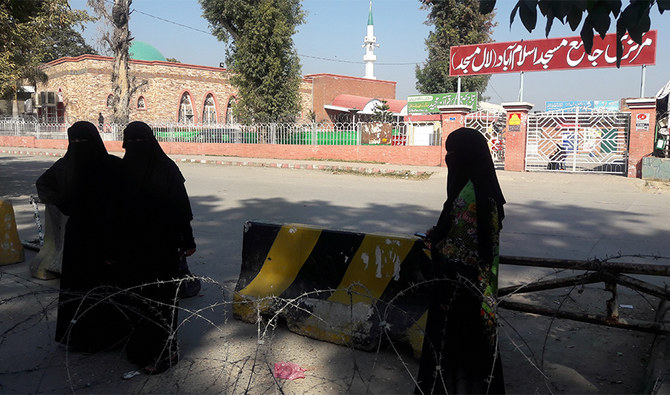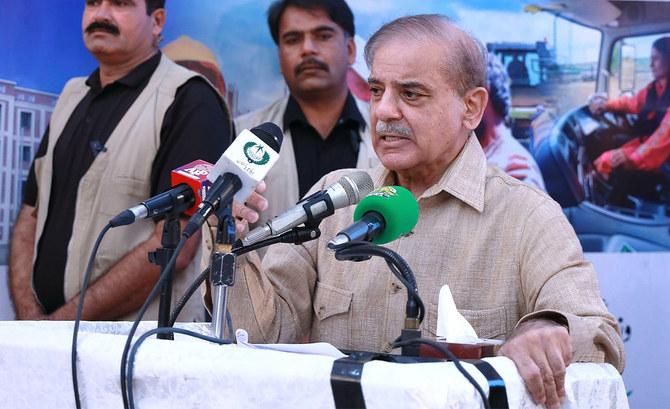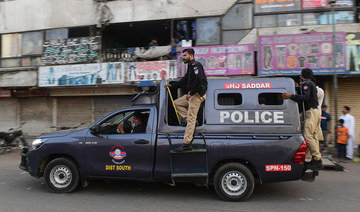ISLAMABAD: The deposed prayer leader of Islamabad’s Red Mosque, Maulana Abdul Aziz, said on Sunday the blockade of the mosque was over, while a tense stand-off nearly concluded its third day amid negotiations between the cleric and the Islamabad administration.
The 59 year old cleric, who holed himself up inside the mosque with hundreds of female seminary students, was demanding that he be reinstated as the mosque’s prayer leader. He had also demanded that the government hand over a large piece of land to him to establish Jamia Hafsa, a religious seminary for women.
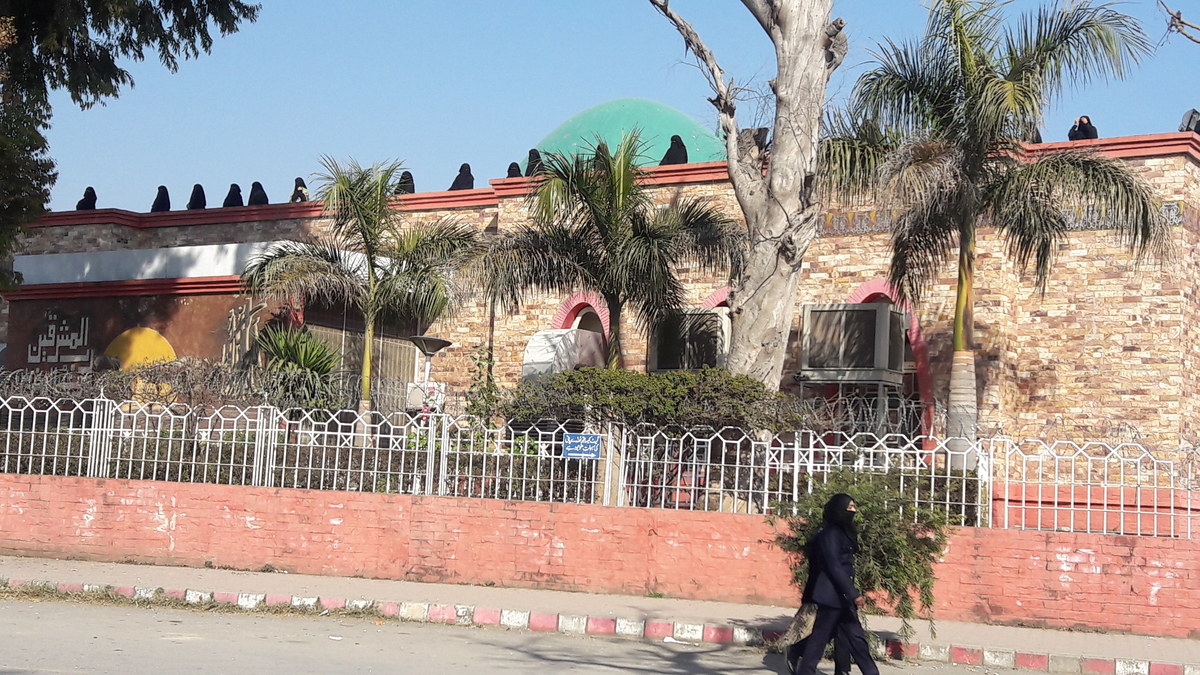
Female security personnel pass by the Red Mosque in Islamabad while burqa-clad female students can be seen standing on its rooftop on February 9, 2020. (AN photo by Aamir Saeed)
“Our negotiations with the government have succeeded and blockade of the mosque is over now,” Aziz told Arab News by telephone on Sunday.
“The government has accepted the Jamia Hafsa a disputed place and agreed to constitute a committee of religious clerics to find a peaceful solution to it,” he said.
“The government has also agreed not to evict me from Lal Masjid forcefully, and I’ll be leading prayers here,” he continued. There is no official comment from the government so far about the end of the blockade or details of negotiations.
In a brief text message, Muhammad Hamza Shafqaat, Islamabad’s deputy-commissioner told Arab News: “All is sorted out,” but said negotiations were still ongoing.
Up till late Sunday evening, all roads leading to the mosque continued to be sealed. Earlier, the district administration had deployed a heavy contingent of police around the mosque area and cordoned it off with concrete barricades and barbed wire.
Aziz became the prayer leader and preacher of the mosque in 1989, after his father Maulana Muhammad Abdullah, who used to lead prayers at the Red Mosque, was assassinated in front of the mosque by unknown gunmen.
In 2007, the Pakistan army led a week-long military operation at the Red Mosque, after reports emerged of armed men and wanted militants hiding inside the mosque.
After a heavy gun-battle, at least 100 male and female students were killed, according to the government of Pakistan.
Aziz was arrested before the final assault on the mosque and was jailed until his release in 2009.
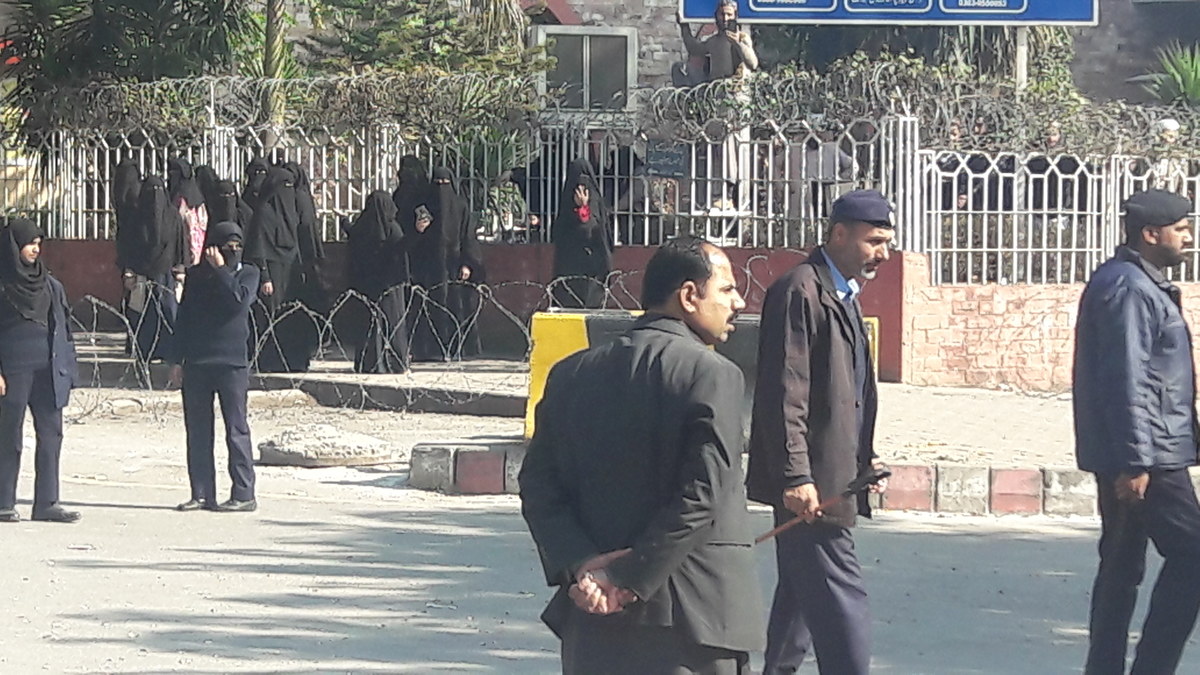
Police personnel stand alert in front of the Red Mosque in Islamabad where its deposed prayer leader holed himself up with hundreds of female seminary students during a stand-off with the government on Feb. 9, 2020. (AN Photo by Aamir Saeed)
Two weeks ago, Aziz entered the mosque, but authorities took serious notice on Thursday when hundreds of young female seminary students broke the mosque’s seal and joined him inside.
In 2007, after the Red Mosque siege ended, the government had razed a women’s seminary run by Aziz and a children’s library adjacent to the mosque, to the ground. The cleric later moved the Supreme Court for possession of the vacant plots, but was denied permission.
Earlier on Sunday, Burqa-clad teachers and students were visible wandering the mosque’s massive compound and rooftop, and often argued with deployed police personnel to be allowed to exit and enter freely.
“There are between 400 to 500 girls inside. We are teaching them here at the mosque peacefully, after the government took back our madrassa from us,” a teacher who declined to be identified told Arab News from inside the mosque perimeters.
“We should be allowed to move here freely, and our plot [for the women’s seminary] should be returned,” she said.
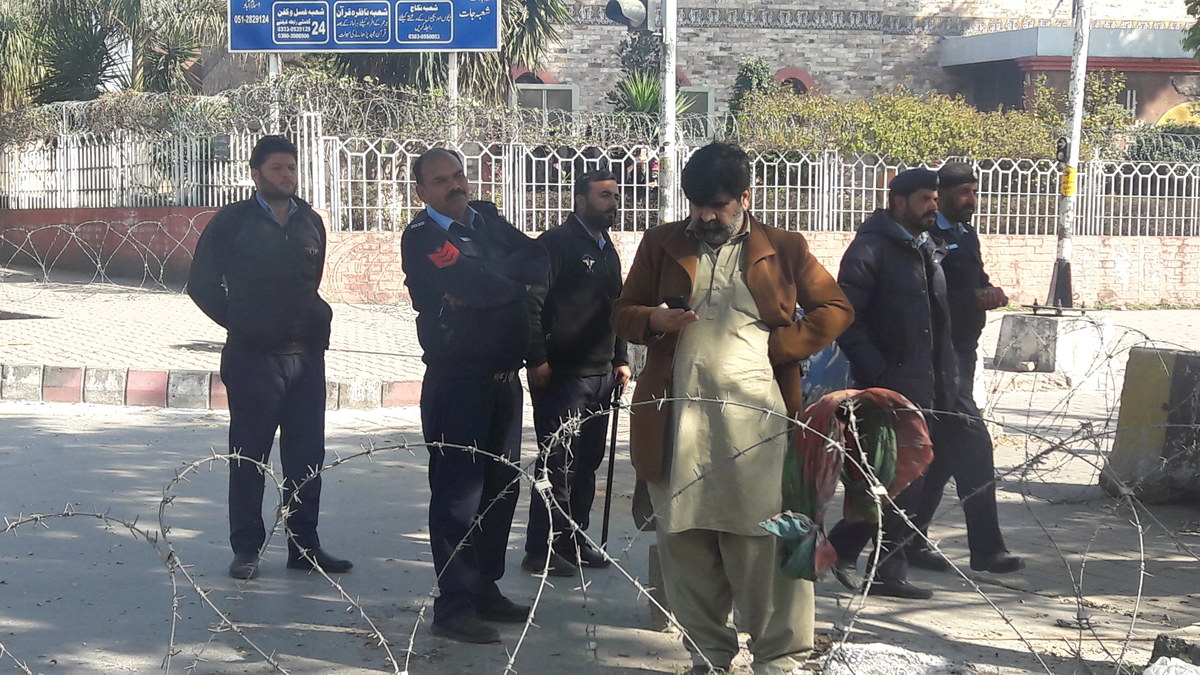
Police personnel stand alert in front of the Red Mosque in Islamabad where its deposed prayer leader holed himself up with hundreds of female seminary students during a stand-off with the government on Feb. 9, 2020. (AN Photo by Aamir Saeed)
Though the government had been negotiating with the cleric to resolve the issue non-violently, Shafqaat told Arab News earlier on Sunday that the mosque and seminary would not be handed over to Aziz.
“Lal Masjid [Red Mosque] is a government mosque. Supreme Court has asked them to evict the mosque and the [seminary] place, but they are not following court orders.”
“He [Aziz] is under fourth schedule and cannot lead prayers [in the Red Mosque],” the deputy commissioner said, referring to a piece of legislation in Pakistani law whereby a person is considered to be a proscribed individual.



